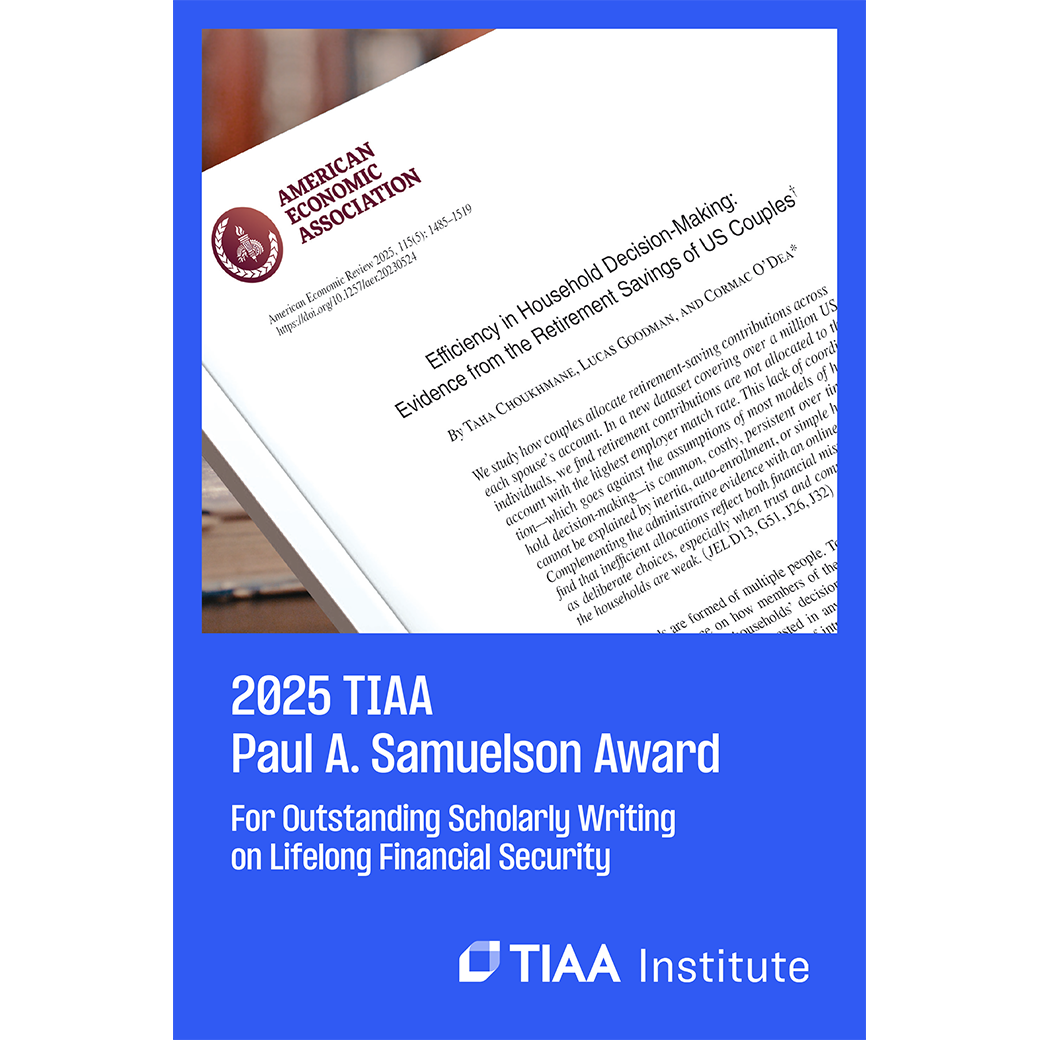Taha Choukhmane (MIT), Lucas Goodman (U. S. Department of the Treasury), and Cormac O'Dea (Yale University) won the 2025 TIAA Paul A. Samuelson Award for Outstanding Scholarly Writing on Lifelong Financial Security for their paper “Efficiency in Household Decision-Making: Evidence from the Retirement Savings of US CouplesOpens in a new window” published in the American Economic Review, Volume 115, No. 5, May 2025. The researchers were honored at an awards dinner Jan. 3, 2026, during the annual meeting of the Allied Social Science Associations.
The TIAA Paul A. Samuelson Award for outstanding scholarly writing on lifelong financial security
Samuelson Brochure

Winners

Taha Choukhmane
Massachusetts Institute of Technology

Lucas Goodman
U.S. Department of Treasury

Cormac O’Dea
Yale University